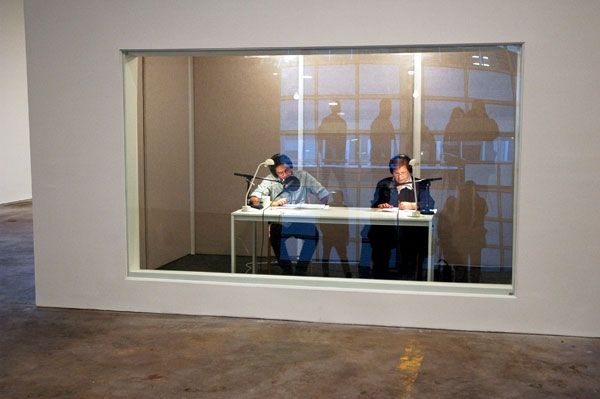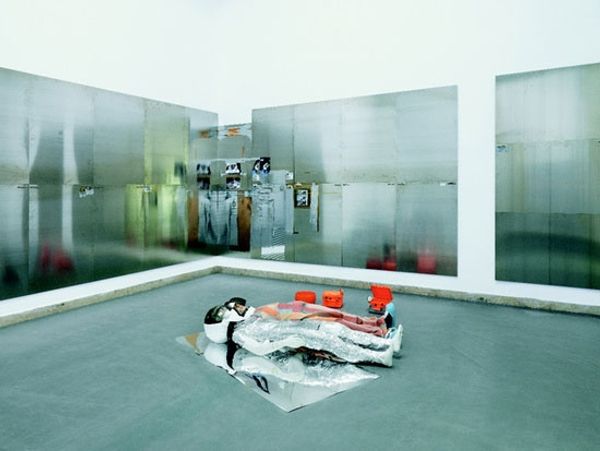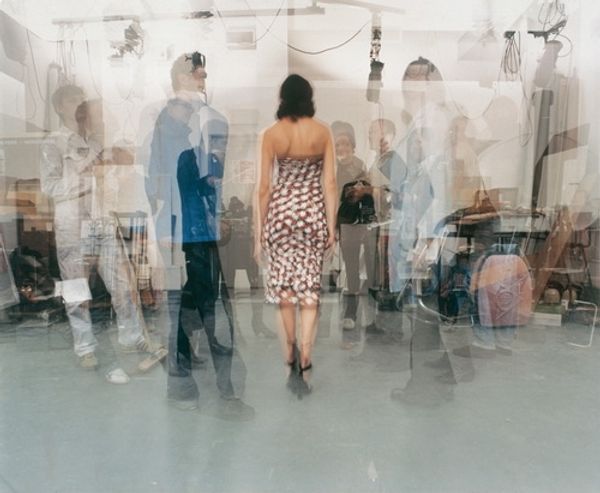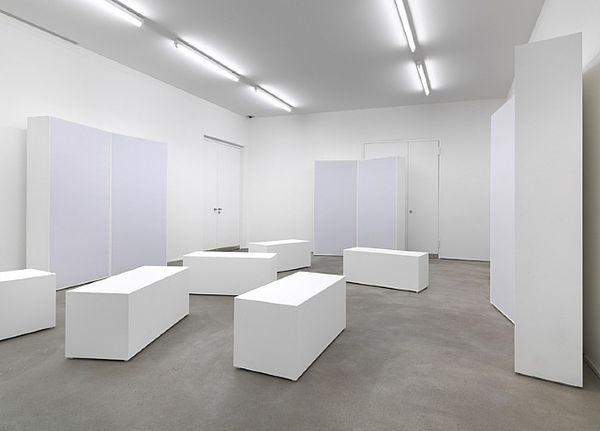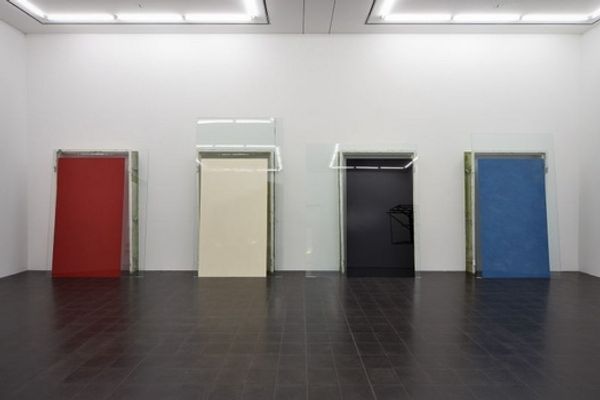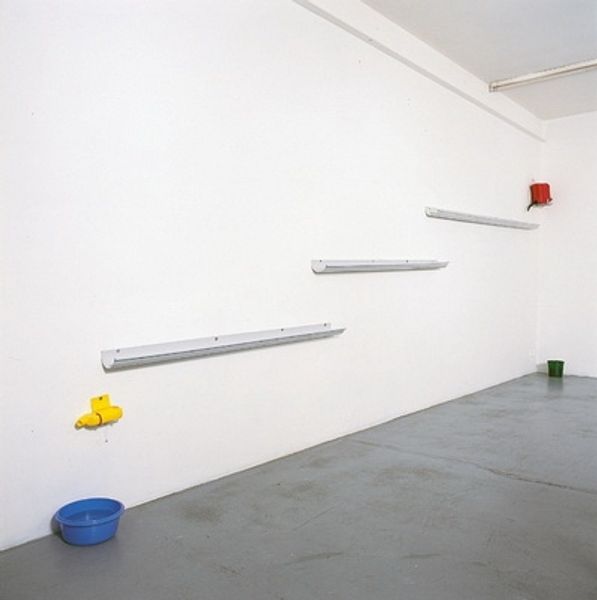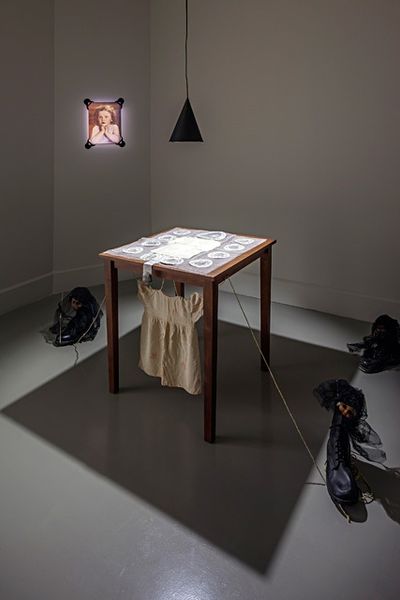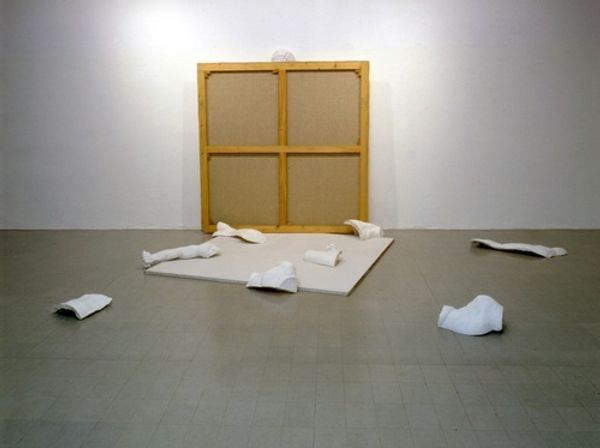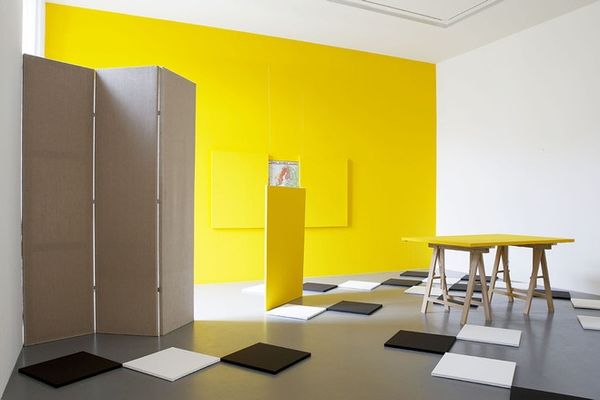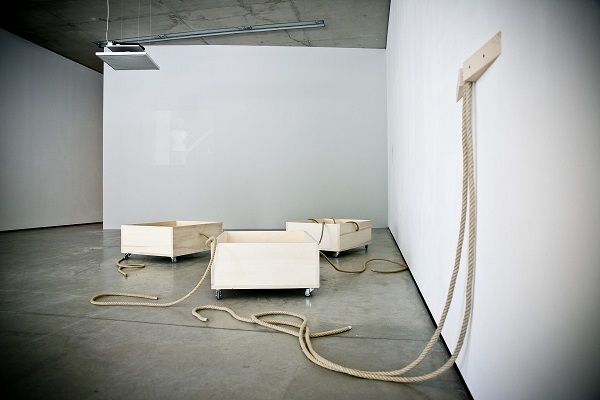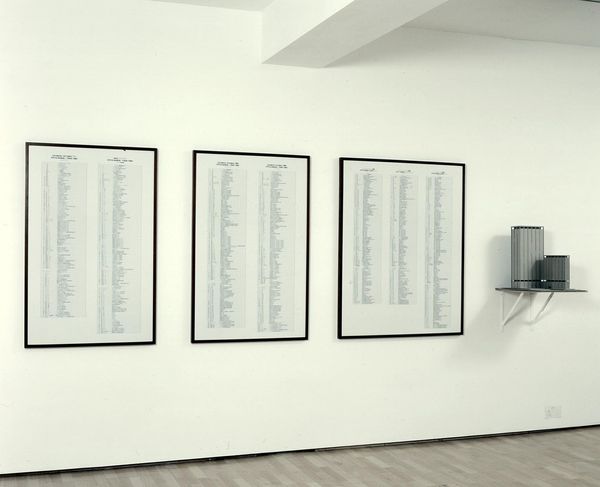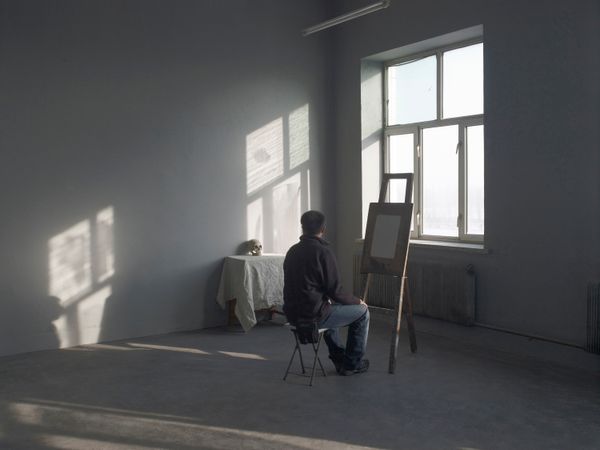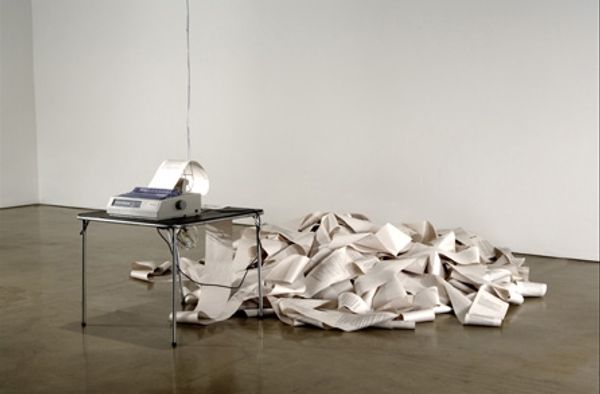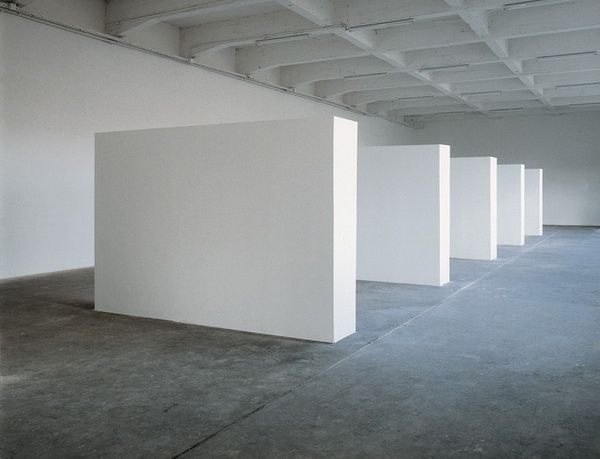
photography, installation-art
#
conceptual-art
#
photography
#
geometric
#
installation-art
Copyright: Carsten Holler,Fair Use
Curator: Carsten Höller’s work, titled "The Pinocchio Effect", created in 1999, offers an intriguing interplay between conceptual art and installation, captured here through photography. What's your first impression? Editor: It feels like a psychology experiment staged in a waiting room, or maybe an absurd office. There's something sterile and clinical about the space, offset by the weird mirroring. It's oddly isolating, despite the visible people. Curator: The core concept revolves around inducing physiological responses. Participants are invited to rub their noses while hearing recorded voices stating different truths and falsehoods. The act combined with the audio supposedly creates the "Pinocchio effect"—the sensation of one's nose lengthening like the fictional character's. Editor: Oh, that's fantastic! So the whole minimalist setup is a carefully constructed apparatus for… self-deception? Or rather, exploring how easily our senses can be manipulated. It’s like a playful jab at the very idea of objective truth, isn't it? Curator: Exactly. Holler deliberately uses everyday objects: school desks, telephones—imbuing them with new purpose. This is also consistent with the period. There’s a sense that institutional critique meets post-internet sensibilities regarding information overload. We are all connected to something but always potentially manipulated. Editor: That cold, mirrored wall becomes less about mere reflection and more about the self as an infinite regression of uncertainty. Looking at the power outlets on the floor, one really starts to question how our bodies relate to technology in that weird feedback loop that creates something totally unnatural. Curator: Absolutely, and beyond the personal sensations is the context: the setting, the material properties... Holler uses simple material processes in such a way that they almost question the viewers. Are they willing to trust, to engage with what seems so ordinary, only to find something deeply disconcerting? Editor: This piece sticks with me. It feels like it holds up a mirror—quite literally!—to our own vulnerability in a world saturated with information and constant manipulation. Curator: Indeed. Holler reminds us that even in our modern reality, some fairytales still resonate—albeit with an unsettling, scientific twist.
Comments
No comments
Be the first to comment and join the conversation on the ultimate creative platform.
